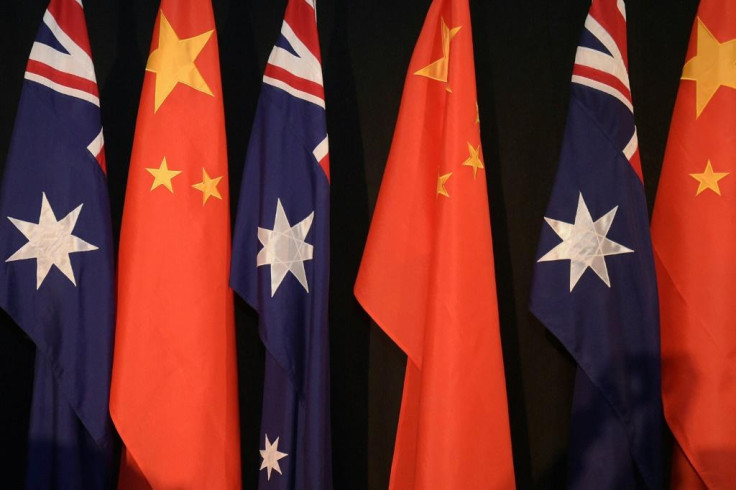Darwin Port Lease: Beijing Warns Of Political Fallout As Australia Pledges To End Chinese Ownership

Beijing has cautioned Australia about potential political ramifications after the latter's major political parties announced election campaign pledges to terminate a 99-year lease held by a Chinese-owned company on the strategic Darwin Port.
Both Labor and Coalition have committed to buying back the port from Landbridge Group, a Chinese operating firm, regardless of the outcome of the upcoming election, 9News reported.
However, the Chinese foreign ministry expressed concern over the move, cautioning that turning the port lease into a political issue could destabilize the improving relations between Australia and China.
The two countries have only recently started to recover from a period of intense diplomatic tensions that led to an economic fallout.
"We urge the Australian side to provide a fair, non-discriminatory and predictable business environment for Chinese enterprises investing and operating in Australia, and refrain from overstretching the concept of national security or politicizing normal business cooperation," spokesperson Lin Jian said Monday.
Two previous reviews -- one commissioned when Peter Dutton served as Coalition defense minister, and the other conducted by the Albanese government in 2023 -- concluded there were no national security grounds to terminate the lease.
Since the Labor government came to power in May 2022, relations with China -- Australia's largest trading partner -- have steadily improved. Bilateral ties between the two countries also improved in the past year following a period of strained ties during which China imposed trade sanctions on Australian goods, which caused an estimated AU$20 billion loss in exports.
The tensions were initially ignited by the previous Coalition government's call for an inquiry into the origins of COVID-19 and accusations of foreign interference.
Marles silent on security issues
Defense Minister Richard Marles has been tight-lipped about whether Australian security agencies have recommended the return of the port to local control, or whether the Trump administration influenced the push to end the Chinese lease, simply stating that the Shandong-based company should not have been awarded the 99-year lease on such a crucial facility, reported ABC.
"We've been consistently on the record for 10 years expressing our concern about the Liberals' sale of the Port of Darwin to a Chinese-controlled entity," Marles told ABC's Afternoon Briefing program.
If re-elected, the Albanese government would pursue "a commercial solution," if not, the government would "exercise the powers that the Commonwealth has to ensure this is brought into Australian hands... as quickly as practical".
When asked if the Trump administration had raised concerns over the lease during his meetings with U.S. Defense Secretary Pete Hegseth earlier in February, Marles declined to comment.
Foreign Minister Penny Wong, in a recent appearance on ABC's Insiders program, stated that the government has made a firm decision to bring the port back into local hands. She also highlighted that elected officials have agreed on the necessity of maintaining control over the port within Australia.
American officials have raised concerns about the lease on Darwin Port, with some U.S. military maps showing the Chinese flag over the port area.
History of the Darwin Port lease
In 2015, the Turnbull-led coalition government had leased the port to Landbridge. Coalition leader Dutton admitted that leasing the port to a Chinese company was a mistake and promised to find an Australian buyer for the port by the end of the year, or otherwise forcibly acquire it at taxpayer expense.
"This is in our country's best interest. We know we live in uncertain times and the government's had three years to deal with this issue, they haven't done that," Dutton said.
Prime Minister Anthony Albanese also criticized the sale in 2015 and confirmed that his government has been actively working to return the port to Australian ownership.
"That was a direct result of the program introduced by the Abbott government in its 2014 budget of asset recycling, which provided an incentive for state and territory governments to flog off our assets, infrastructure assets," he pointed out.
Meanwhile, John Elferink, the former Northern Territory minister and attorney-general in the previous Country Liberal Party government that approved the deal, defended his government's decision to lease the port.
He accused the Commonwealth of not raising any security concerns at the time, when the deal was approved by Malcolm Turnbull's Coalition government.
Elferink also stated that successive federal governments had overlooked the Northern Territory's calls for investment in the aging port infrastructure, leaving his government with no choice but to secure a private tenant.
"The only reason this ever became an issue was well after the event when [US] president [Barack] Obama made a comment when he was talking to ... Malcolm Turnbull. That then belled the cat, so to speak. And since that time, this has been a percolating issue in the background," according to Elferink.
The deal, which brought in AU$506 million in 2015, enabled the NT government to "significantly reduce" its debt and allocate funds to programs within the Northern Territory, Elferink added.
© Copyright 2025 IBTimes AU. All rights reserved.





















